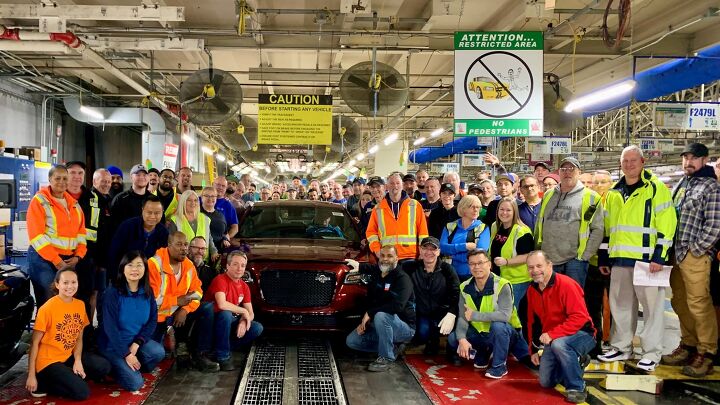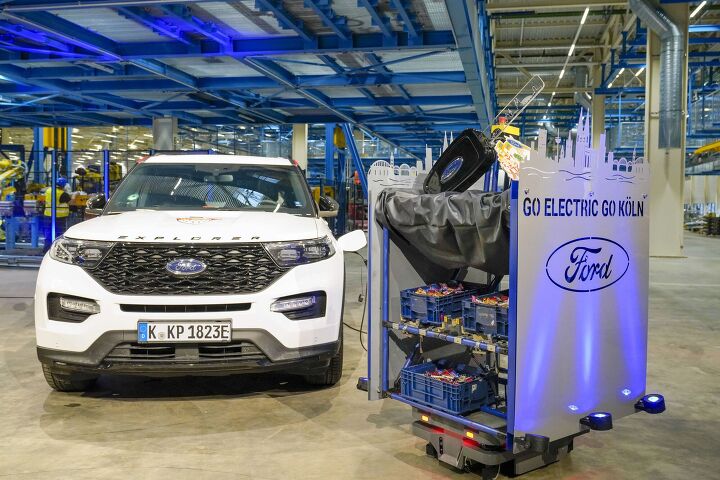Many people think American car companies make all of the components that go into manufacturing a domestic car, but that’s very far from the truth. Even the most American-made cars carry parts made in Asia, Europe, and Central/South America. Canada and Mexico are especially significant automotive trading partners, and Trump’s recently announced tariffs on the country could cut the industry deeper than we initially thought.
Trump’s Proposed Tariffs Could Cut the Auto Industry Deeper Than We First Thought




The Detroit News reported that the U.S. auto industry imported almost $450 billion worth of goods from the two countries in 2023. Some, including Ford, General Motors, and others, build vehicles north or south of the border and import them for sale here. The Big Three automakers in Detroit could be especially impacted by the tariffs, with the CEO of Anderson Economic Group in East Lansing, Michigan, telling the News, “This is a two-alarm fire for the Michigan economy. No state is as vulnerable as Michigan to a trade war or a sudden escalation of tariffs with Canada.”
Part of the auto industry’s problem may come from retaliatory tariffs from either country, especially those that ship vehicles and components across the borders more than once during the manufacturing process. Ever-escalating tariffs could eventually impact a wide range of products, but it’s the hidden components under the hood of many new cars that could make new cars significantly more expensive.
Automakers are already working with lobbyists and others to lessen the impact of a potential future tariff, though the stock market has already expressed skepticism, with Stellantis and GM stocks falling after Trump’s announcement.
[Images: Stellantis, Ford, GM/Chevrolet]
Become a TTAC insider. Get the latest news, features, TTAC takes, and everything else that gets to the truth about cars first by subscribing to our newsletter.
Source: The Truth About Cars
Recent Posts
Does Netflix Know What It’s Doing With Roald Dahl?
The streamer acquired the Roald Dahl Story Company for a hefty sum in 2021, and…
Used Car of the Day: 2012 Audi A4 Avant
Today we're back on the German wagon, uh, bandwagon with this 2012 Audi A4 Avant.…
Nothing is rotten in the state of Cupertino — Siri
Ever see Jason Vorhees, hockey mask and knife in tow, out on the town on…
Elon Musk Sends Huge Contributions to 7 Republicans Who Want to Impeach Judges
Musk will reward politicians who seek to destroy the justice system.
B&H Photo Buys Nearby 10-Story Office Building for $150 Million
B&H reportedly purchased Brookfield's 10-story 333 West 34th Street building for $150 million. The 287,000-square-foot…
From Grow Up to Glo-Up: Ormewood Is the Unexpected MVP of Will Trent Season 3 (And I’m Not Mad About It)
We need to talk about Michael Ormewood. Is it me, or is he slowly becoming…